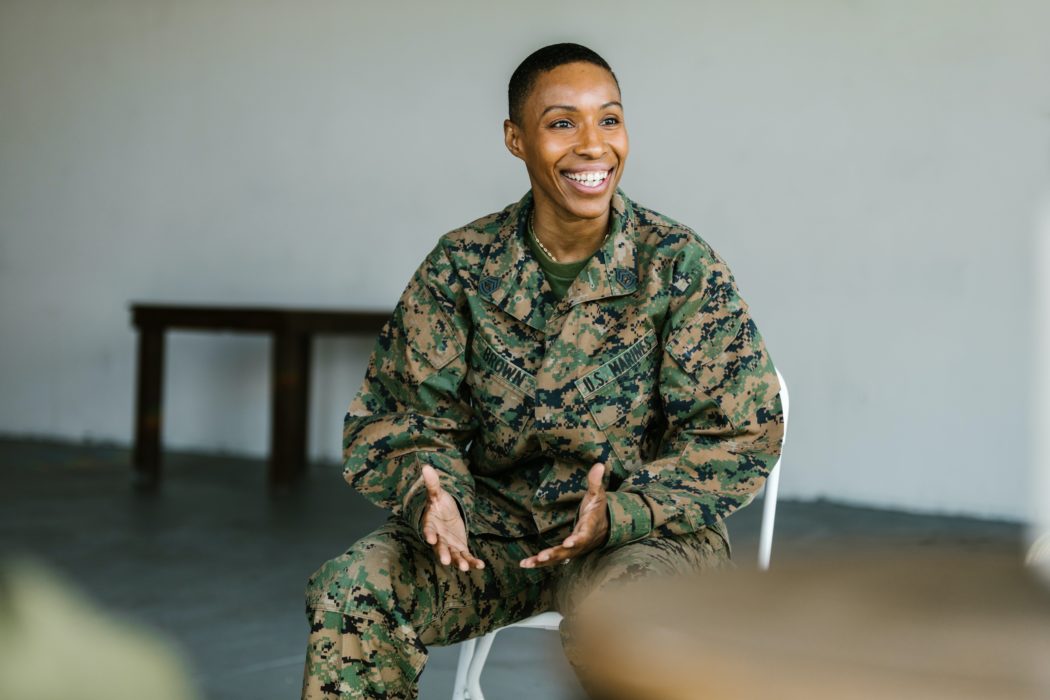 Nov. 11 is Veterans Day. Do you know a veteran? Do you know a female veteran?
Nov. 11 is Veterans Day. Do you know a veteran? Do you know a female veteran?
Perhaps not, but there’s plenty of time to find one and ask her about her service. You will be rewarded with stories you won’t easily forget. Go for it.
We women, veterans or not, are so busy taking care of others, working and trying to stay healthy that we find little time to tell our children or grandchildren what we did “back then.” Okay, maybe you don’t want to tell them all the things you did. (You can edit, it’s okay!) The point is that all of us need to make an effort to share.
I recently found my mother’s teenage scrapbook. Oh my goodness, the mother I knew turned out to be a rather flirtatious teen with several boy friends and parties galore. I would never have known because I never asked her and she didn’t tell these stories. I even found a handwritten note with every prediction she got from a fortune teller. I was flabbergasted. Some came true.
My advice is basic, ask and tell. Ask some more, tell some more, and then write it down. Our stories are important and unless we make an effort both to ask and to tell, they are lost. My own journey collecting veteran women’s stories was not particularly planned, so don’t let a lack of a list of questions or an outline stop you.
I moved and found some old Army papers of mine from my service in the 1970s. They were yellowed and curled but at that moment I was curious about the other women I had served with.
I just began. I went online and found one and talked to her over the phone. And yes, this was when we used tape. I propped the small recorder against the phone and got my friend’s permission to record her stories. My excuse was that I might write a book about the old days.
(I haven’t.) She was happy to chat at length about her Army days. Then she told me about another friend. And then another. And then someone wanted to tell their church friend or sister about my project. I was amazed that so many were so eager. Without formality or script I kept going, collecting funny, sad, frightening, wonderful stories. I got some of them transcribed but mostly after running out of money, I put the tapes in a box under my bed.
It occurred to me one day that I might die. Yes, I know, but I hadn’t really worried about it much.
I was a cancer survivor and immortal, right? But what if my precious box was thrown out?
What if the stories were lost? I gave a few women a transcript of their interview so I knew they could pass it on to their family, but history is lost even in families. What to do?
I began to call around to various archives that stored military oral histories. None of them had women’s stories from the 1970s. Many wanted only combat stories. Theoretically women weren’t in combat back then, though had the Cold War turned hot, you better believe they would have been by necessity. The other thing I needed was money to transcribe the rest of the tapes and go on with my collecting. Grants are things academics get. I wasn’t one.
Oral history at the beginning of the 21st century was about developing a theme and formulating biographically detailed questions before you even got to the good part; i.e., the story. I did not want to be an academic. I just wanted to save veteran women’s stories from a particular period.
I persisted until I found an archive to support the project. The Schlesinger Library at Harvard has all of my work and they gave me enough money to continue. I believe there are over 40 in the collection now though I have lost count.
When I began I had no name for what I was doing. It was always “my project.” When I found out it was oral history, I was thrilled. My peeps. Now I see these stories as primary sources.
They are research material when historians try to piece together what ordinary folks did and thought at that time in history. As I often told my interviewees, what if we could push a button and hear a nurse from the Civil War describe her life. Someone, one day, may listen to yours.
The power of story cannot be overstated. Whether you are a media journalist, investigative journalist, creative journalist, environmental or legal journalist, personal essayist, or oral historian, honing in and finding out by asking and telling is essential to the story.
Women AdvaNCe is a wonderful organization that has resources for you. Learn what you need and then write. Write or speak or record. Keep going. Once you tell a story, it is history that won’t be lost.
Janice Farringer served in Germany as a Captain in the JAG Corps, from 1977-1980.

There are no comments
Add yours